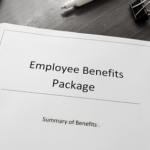In a post-Brexit world, the UK government (while not fighting among themselves) is keen to sell the country as an attractive destination for businesses and the entrepreneurs behind them. So what is the reality of the welcome you might receive as a business person looking to establish yourself in the UK?

The first thing to say here is – it’s vital to keep an eye on available visa routes, which can be withdrawn, altered or introduced with little or no notice. This approach doesn’t endear the UK’s Home Office – the government department that handles visas and immigration – to either applicants or their legal advisors. The rationale: to avoid a high volume of last-minute applications when a route is ended. The effect: serious disappointment for many individuals, who were working towards submission of visa applications that by definition were not simple or quick to prepare.
In recent times, we have seen the entrepreneur, investor and most recently sole representative (of an overseas business) visa categories abruptly withdrawn. This has left many business owners and potential applicants wondering if they have any hope of a future life in the UK. So what are we left with now?
Introduction of Global Business Mobility
April 2022 saw the introduction of various new Global Business Mobility (GBM) routes into the UK’s immigration system. GBM is a new set of sponsored routes to assist overseas businesses with establishing a presence in, or transferring workers to, the UK.
The GBM routes replace previous business mobility provisions such as the Intra-Company Transfer route, representative of an overseas business and aspects of the Temporary Work – International Agreement route. It sees the introduction of five new immigration routes.
Senior or Specialist Worker
This route replaces the Intra-Company Transfer Long-term Staff provision, which multinationals relied on to transfer existing workers to the UK for a temporary period of time. It is important to note that it does not lead to settlement (permanent residence) in the UK.
It is for overseas workers who are undertaking temporary work assignments in the UK, where the worker is a senior manager or specialist employee and is being assigned to a UK business linked to their employer overseas. The inclusion of this category under the GBM has resulted in a few changes that employers should be aware of. The general salary threshold has increased to £42,400 gross per annum (or the going rate under the role, if higher). Another change is that those granted permission to enter from 11th April 2022 will no longer be able to undertake supplementary employment.
The requirement that workers must have been with the same sponsor group overseas for 12 months (unless they are a high earner earning at least £73,900 gross per annum) continues to apply, as do the limitations in relation to how long workers can stay in the UK (Senior or Specialist Workers can spend up to five years in any six-year period in the UK, unless they are a high earner, in which case they can spend up to nine years in any 10-year period in the UK).
Graduate Trainee
More of a rebrand than anything. It is for overseas workers who are undertaking temporary work assignments in the UK, where the worker is on a graduate training course leading to a senior management or specialist position and is required to do a work placement in the UK.
The inclusion of this category under the GBM sees a slight increase to the general salary threshold to £23,100 gross per annum (or 70% of the going rate, if higher), and like Senior or Specialist Workers, Graduate Trainees are no longer permitted to undertake supplementary work. For organisations that use the Graduate Trainee category frequently, UKVI has removed the limit of only being able to assign 20 Certificates of Sponsorship (CoS) each year.
UK Expansion Worker
A shiny new category? Well, kind of. This route replaces the Representative of an Overseas Business route. The new Appendix Global Business Mobility Routes provides the following definition:
The Global Business Mobility – UK Expansion Worker route is for overseas workers who are undertaking temporary work assignments in the UK, where the worker is a senior manager or specialist employee and is being assigned to the UK to undertake work related to a business’s expansion to the UK.
Unlike its predecessor, workers seeking permission to enter as UK Expansion Workers need a Certificate of Sponsorship, so will need a licensed sponsor. The sponsor will need to be a branch or wholly-owned subsidiary of an established overseas business, and to succeed with a UK Expansion Worker application, the business must not be trading in the UK.
A company holding a UK Expansion Worker sponsor licence will be able to sponsor up to five UK Expansion Workers at any one time, and each worker will need to be paid at least £42,400 (or the going rate under Appendix Skilled Occupations). Similar to the Senior or Specialist Worker route, UK Expansion Workers must have worked for the sponsor group for at least 12 months, unless they are high earners.
UK Expansion Workers will be granted permission to enter for up to one year initially, and can extend their permission to remain for one further year, but two years is the maximum period of time a UK Expansion Worker can stay in the UK. This is because UKVI expects businesses to have established a trading presence in the UK within two years. After a maximum period of two years in the UK, those sponsored as UK Expansion Workers will be expected to switch to another long-term sponsored route.
We did wonder how an Expansion Worker sponsor licence application would be considered. The guidance confirms that, as the organisation won’t have a trading presence in the UK, the evidence must include proof of a UK footprint; evidence of overseas trading presence; evidence of planned UK expansion; and one other document from those specified in guidance.
Service Supplier
The Service Supplier is for overseas workers who are undertaking temporary work assignments in the UK, where the worker is either a contractual service supplier employed by an overseas service provider or a self-employed independent professional based overseas, and they need to undertake an assignment in the UK to provide services covered by one of the UK’s international trade agreements.
There are two noticeable changes to this type of visa entry; firstly, there are two ways of scoring points:
- Option A: unlike its predecessor, a Service Supplier can be sponsored if they’re undertaking a job listed in Appendix Skilled Occupations that is identified as eligible for the GBM routes.
- Option B: this was the only way of scoring sufficient points under the Temporary Worker – International Agreement category; the worker must hold a relevant qualification, and must have at least three years’ experience (note: some contracts require six years’ experience).
Regardless of which option is relied upon, as was the case under the International Agreement category, the worker must have worked for the organisation overseas for 12 months, the UK organisation must sponsor the worker, and the UK and overseas organisations must have a genuine contract that must be covered by a UK international trade agreement.
The second significant change is that the inclusion of this category under the GBM has resulted in a new requirement about the maximum period of time a Service Supplier can spend in the UK; while workers can only ever be sponsored for up to six or 12 months (depending on the trade agreement relied upon), the GBM Rules confirm that Service Suppliers can only spend five years in any six-year period in the UK.
Home Office guidance also recognises that subcontracting is permitted, which could be useful for organisations. The guidance further confirms that, under this GBM route, contracts must be registered with the Home Office. They did in fact have to be registered under the former route too.
Secondment Worker
The only 100% new visa route introduced this year, but unfortunately the one with the least practical application. Secondment Workers are defined as those who are undertaking temporary work assignments in the UK, where the worker is being seconded to the UK as part of a high-value contract or investment by their employer overseas.
Secondment Workers will need to be sponsored by an organisation in the UK, and Immigration Rules confirm that the UK sponsor must have a contract with an overseas business that must have been registered with UKVI and under which the Secondment Worker will work. The worker must also be undertaking a job listed in Appendix Skilled Occupations that is identified as eligible for GBM sponsorship. A Secondment Worker must have been working for the overseas business for 12 months, and must comply with a financial requirement to prove they won’t be a burden in the UK. Permission to enter will be granted for 12 months, and 24 months is the maximum period of time a Secondment Worker can spend in the UK continuously.
For the Secondment Worker route, there must exist an investment or contract for goods or services between you and an overseas business worth at least £10 million per year and no less than £50 million overall. This means that if the duration of the contract is less than five years, it must be valued at least £50 million. If the contract is five years or more, it must be worth at least £10 million per year. If the contract has no specified end date, it must be worth at least £50 million over the first five years.
So, pretty niche.
Overall, the changes aren’t significant, although we’ll all need to get to grips with the new terminology! We still have the issue that not all ‘specialist’ occupations can be sponsored under the GBM categories. For example, unless a welder – a role that many of my clients struggle to recruit for in the UK and rely on specialist workforces from within the EU – qualifies as a Service Supplier or meets the strict definition of a Secondment Worker, there is no change to the pre-11th April hurdles we faced. In my opinion, the new provisions don’t create any useful categories that can actually assist businesses in the UK who rely on temporary workers, and who cannot turn to UK companies who offer the same service. Labour issues that arose following Brexit shall, unfortunately, continue for now.























